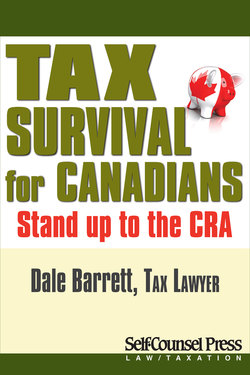Читать книгу Tax Survival for Canadians - Dale Barrett - Страница 42
На сайте Литреса книга снята с продажи.
6.2 Using an accountant or a tax return preparer
ОглавлениеA great many Canadians engage the services of accountants and tax return preparers each year during income tax season.
One thing to consider when you are getting help is that not all help is good help. In fact, a great deal of my clients are taxpayers who need assistance sorting matters in which their “accountant” had led them astray or given them poor advice or service. Invariably they refer to the person who was doing their taxes or handling their negotiations and dealings with the CRA as their “accountant,” yet in many cases the person was not an accountant at all. Oftentimes, the client had engaged the services of somebody who was unreliable or unqualified.
“Accountant” is not a protected word, unlike the words “police officer” and “lawyer.” That is to say that anybody may claim to be an accountant or may provide accounting services, even if they are not a licensed or credentialed accountant, whereas not everybody can call themselves a police officer or lawyer.
This is not to say that you should always engage a Chartered Accountant to prepare your tax returns. If your taxes are simple, you may fare much better by having a tax return preparer do your taxes. If the preparer knows what he or she is doing, the returns will likely be correct and you will pay a much lower rate than the Chartered Accountant would have charged you. However, if you have a more complicated tax return, you may want to seek the type of a tax professional that you believe would be best suited to give you advice. It may be a Certified General Accountant, a Chartered Accountant, or even a Tax Lawyer depending on the issues and the level of complexity.
As always, read your return and verify the contents before signing — regardless of who prepared it. Once you sign the return, you become liable for any inaccuracies, and you can be severely penalized or punished for false statements.
